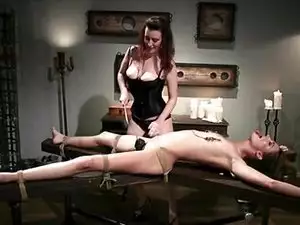Duty And Duplicity; Book 5 Of Poacher's ProgressChapter 6: Renaissance free porn video

“This is the where the Renaissance began, Colonel Greenaway.”
Signora Garibaldi indicated the vista of the Piazza del Signoria with a sweep of her hand.
“Such a wealth of talent lived and worked in Firenze over the years. Michelangelo, Leonardo de Vinci, Cellini, Donatello, Galileo, and so many more. This statue is a Florentine statement of their independence and freedom of thought, in art, architecture, science, philosophy, and politics.”
It was the day after the dinner at the Monmouths, and Signora Garibaldi and I were standing before Michelangelo’s statue of David.
The sculpture is immense, standing nearly two dozen feet high, and hewn from a single block of dazzlingly white marble.
Signora Garibaldi had waxed eloquently on how the work of art came to be commissioned, and the time it took to have this masterpiece of sculpture eventually raised in the piazza, but I scarcely heard her, spellbound by the life-like pose of David, as he readied himself for the battle with Goliath.
The strength of his self-belief, and the force of his personality, brought to life in marble – truly a magnificent work of art.
One other thing did strike me. David is depicted nude, and his ... equipment ... seemed rather small for such a well-proportioned body.
Most All men are concerned with the size of their equipment, and for a great hero to be shown sporting such a small penis will give confidence to those who might think themselves short changed in life.
I salute you, Michelangelo, not only as a great artist but also for the compassion shown to your fellow, insecure, under-endowed, males.
Signora Garibaldi then guided me through the Uffizi gallery, where she again treated me to a tutorial in Renaissance art. I was overwhelmed by the beauty and wonder of the pictures, and the thought of how Man can rise above the despair, deprivations, and decadence of the world to accomplish such glorious works. These sublime works of art had been produced at a time of plagues, famine, mercenary soldiers raping and pillaging, and the Holy Roman Church burning so-called heretics, and yet the artists had demonstrated man’s gift of being able to rise above the dross of life.
For the first time since fire consumed Hungerford Hall, and my wife and family, I felt hope. Hope in the future, hope in my future. My new found demeanour must have showed on my face.
“What has happened, Colonel? You appear to have experienced a Damascus moment.” Signora Garibaldi said.
I shook my head. “No, I have no faith in any so-called God, but what I have seen today reinforces my belief in the triumph of man over adversity.”
“Because of God, Colonel.”
“No, in spite of God, Signora.” I turned to leave, but she caught hold of my sleeve.
“I can see you have suffered greatly by the loss of your wife and family, but you must not give up your faith. We do not know why these terrible things happen, but all will be revealed on the Day of Judgement.”
“I apologise, Signora. I have my beliefs and you have yours, and I was wrong to speak so bluntly. I shall go, and offend you no more.” I made to leave but her voice stopped me.
“You did not offend me by your comment. I admire men who speak up for what they believe in – although had you expressed such thoughts here a little over a century ago you would have perished at the stake. We have made some little progress since then.”
She fixed me with those penetrating eyes. “I have much more to show you of Firenze and its treasures, Colonel, but I think it now time you tell me what brought you to your loss of faith.”
We sat at a table of a trattoria, shaded from the hot afternoon sunshine by a large scarlet umbrella. Signora Garibaldi ordered a dish of risotto, which consists mainly of rice, and was delicious.
After finishing our meal we talked, or rather she asked questions which I answered remarkably fulsomely, given that I had no knowledge of my interlocutor less than twenty-four hours previously. However, for reasons I cannot explain, I opened myself fully to her probing questions.
Signora Garibaldi heard the story of my life, from the time I first met Amy Fairfax to me watching Daft Danny kicking his last on Gallows Hill, but excluding the Saint Helena episode, the Peterloo Massacre, the Cato Street incident, and certain amorous experiences. The evening was well advanced by the time I had finished.
Throughout my confession, disclosure, testament – call it what you will – her bright insightful eyes were fixed unswervingly on me, as a falcon pins its prey before stooping.
“You have given me much to dwell on, Colonel, but the time has come for us to leave. We will meet here – “ she indicated the trattoria – “tomorrow at ten, when I will continue the tour of Firenze.”
She glanced at me, an enigmatic smile on her lips. “You may then delve into me as I have delved into you.”
I wondered if she knew of the innuendo carried by the word she had used.
I stood to leave, and then asked how she would get home. Her answer surprised me.
“My coachman has orders to meet me at the Duomo - the cathedral, after Vespers.”
I took my leave of her in the English manner of a handshake.
For the next two days I had a full and exhaustive tour of Firenze, and in the course of her showing me around the city learned a little of Signora Claudia Garibaldi’s history.
She was born in Padua, to the wife of a professor at the university, and had inherited the high intellect of her father as well as his inquiring mind.
At the age of fifteen she had been married to a wealthy Paduan merchant, but was widowed at seventeen. On his way home to his estate and young wife, after a night of drunken revelry at a Padua brothel, her husband had fallen into one of the many watercourses in the area, and drowned.
I received the impression her widowhood was not unwelcome.
She took over the running of her husband’s business, and soon acquired a wide knowledge of the trade links between Venice, the Levant, and the Balkans.
She eventually sold the estate, and put the money into a consortium of successful Merchant Venturers based in Venice.
One lunchtime we stopped for refreshments at a pavement kiosk. While we sat on a bench, watching the ebb and flow of the populace, Signora Claudia Garibaldi – she had reverted to her family name soon after her widowing – began asking questions about the death of Caroline and my family.
It did not take her long to worm from me the full story of my killing of Ashby de La Zouche in revenge of his murder of Annette Blanchard, and the subsequent reprisal of the burning down of Hungerford Hall.
“A revenge killing? A blood feud can only end with the termination of the line of one of the families involved. You must kill all the members of the de La Zouche family. How many are left alive?” Her eyes glowed with interest.
“Just one, Eloise de La Zouche.”
“And where does she live?”
“I have no idea. She could be anywhere in Europe. I had thought Cadiz would be her base, as the city appears to be the place where White Lady enters Europe, but the British consul in the city had not heard of her, or of anyone who matches her description.”
“Who is this White Lady, and why does she arrive in Cadiz?”
I then described how White Lady, a drug derived from the coca plant of South America, was being imported into Europe via Cadiz, and explained Eloise’s involvement in securing the notes of Timothy Whyte-Taylor, who had first extracted the substance from coca leaves.
“Eloise de La Zouche was employed by a cabal of wealthy, important, and influential men – and an integral part of their organization. She was on an important mission in England with Sigismund Metzendorf, but he is dead, probably killed by her. She has since disappeared.”
Claudia Garibaldi wrinkled her brow in thought. “I could ask members of my trading consortium if they know of her, or of the commodity she deals in – her name is unknown to me. ‘However, ‘Metzendorf’ stirs a vague memory of mine, but I cannot bring it to the fore front of my consciousness.”
We resumed our tour of Firenze; with her arm now linked with mine.
A week before I was due to return to Livorno I journeyed to Claudia’s villa – by now we referred to each other by our forename. She called me Giovanni, which is the Italian version of John.
During the time spent with her in Firenze Claudia had ferreted from me my association with Annette Blanchard, and also my relationship with Chloe Renoir, Mimi Renoir, and Matilde Gance, who I referred to as the Blanchard Girls, and how Mimi had saved my life by feeding me her breast milk when I lay in a coma.
I had also let slip my sister’s association with the Shelleys and Lord Byron. Claudia was onto that last item of information as quick as a lurcher on a rabbit.
“Milord Byron! You have met the great man?”
“No, I have not had the pleasure.” Not mentioning the fact my sister Becky had been ‘the great man’s’ mistress for almost a year.
“Byron is a genius –worthy to be compared with the great artists of the Renaissance.” She said.
I was leery of giving away too much of Becky’s association with Byron, or mine with the Shelleys, so gave a non-committal grunt and changed the subject.
“Your beautiful villa is well situated, overlooking Firenze as it does.”
From the terrace one could see the red tiled dome of the cathedral, with the silver ribbon of the Arno snaking through the city.
Claudia smiled, and a small dimple appeared in her cheek, both attractive and unexpected.
“I believe there was once a Roman villa on the site; I had an architect design this villa to closely resemble a typical rural Roman villa of the Second Century Anno Domini.” She gazed down at the city of Firenze.
“This is a view of which I will never tire. I have left instructions to be buried by that olive tree.” She gestured towards an ancient gnarled tree that might even have dated from the original villa.
“I’m surprised you choose to live here, Claudia, rather than in Padua, which I understand has beauty equal to Firenze?”
“Padua does not hold happy memories for me, nor does it have the same quality of light as Tuscany.” She swung around and faced me, a determined expression on her face.
“I should confess something to you, Giovanni, although in doing I may forfeit your friendship, which I value far higher than first thought I would.” She took a deep breath. “I am a follower of Sappho, and I do not just mean her poetry. My preference of partner in a physical, sexual, union is a female.” She kept her eyes fixed on me, awaiting my response.
- 27.11.2022
- 38
- 0




























































